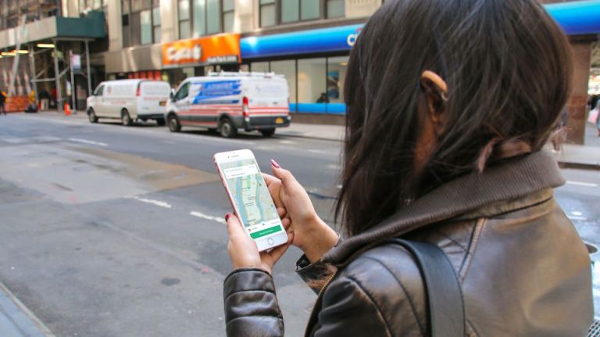Ride sharing on app-based taxi services is catching up. Now researchers at the Indian Institute of Technology Delhi have developed an algorithm that can guide taxi drivers to take a route where they can find more commuters for sharing. They believe this algorithm can make shared rides more profitable for drivers and reduce waiting time for commuters as well.
To make cabs more economical for customers, many taxi-service companies are promoting ride-share among commuters. Here two or more ride-orders are completed by a single taxi driver who can complete these rides without deviating much in a given travel route. The taxi company benefits from such ride shares as it increases their customer base, reduces fuel and allows them to maximize profits from limited number of vehicles.
However, often a compatible ride order may not possible on a given route due to which company may incur loss as it has to notify charges to ride-share customers even before they take a cab.
” The taxi company benefits from such ride shares as it increases their customer base, reduces fuel and allows them to maximize profits from limited number of vehicles.”
“In the current scenario, the appearance of subsequent compatible customers is left to luck – a taxi moves along the shortest (or quickest) path for the existing customer and hopes to find additional compatible customers on its way,” said Dr. Amitabha Bagchi, Associate Professor, Indian Institute of Technology, New Delhi while explaining the problem to India Science Wire.
The new algorithm is more efficient in searching compatibility between ride-orders. Called “Share” (Sharing with History-Aware Route Recommendations), it finds routes beyond shortest paths and recommends a route that is close in length to the shortest path and offers higher chance of finding a compatible ride-order.
To verify the algorithms, researchers tested it on real taxi datasets from New York and Singapore across a range of metrics. The results showed that routes recommended by the algorithm received up to 40% reduction in orders without ride-sharing than the shortest path. Also, this reduces waiting time for customers by 20%.
“We would like to see how our algorithm works on Indian conditions by collaborating with one of the taxi operators from India. We are also extending this work for the food delivery business,” said added Dr. Bagchi.
The research team included Chak Fai Yuen, Abhishek Pratap Singh, Sagar Goyal and Sayan Ranu.
India Science Wire
Source: VigyanPrasar
Image Courtesy:Verifone
You may also like
-
New Heat-Based Approach To Cancer Treatment Can Reduce Chemotherapy Doses
-
Scientists Take A Major Step Towards Unification Of Classical & Quantum Gravity
-
India Graphene Engineering and Innovation Centre (IGEIC) Under the Vision of Viksit Bharat@2047 Launched
-
New High-Performance Gas Sensor can Monitor Low Level Nitrogen Oxides Pollution
-
Antidepressant Drug can be Repurposed for Treating Breast Cancer
